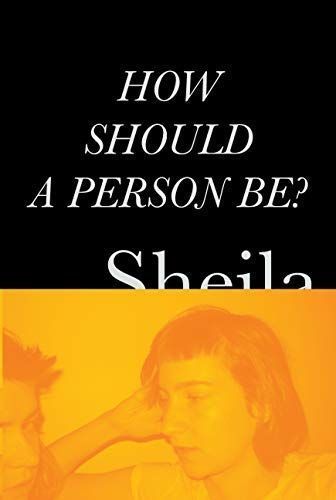
How Should a Person Be?
From the internationally acclaimed author of The Middle Storiesand Ticknorcomes a bold interrogation into the possibility of a beautiful life. How Should a Person Be?is a novel of many identities: an autobiography of the mind, a postmodern self-help book, and a fictionalized portrait of the artist as a young woman — of two such artists, in fact. For reasons multiple and mysterious, Sheila finds herself in a quandary of self-doubt, questioning how a person should be in the world. Inspired by her friend Margaux, a painter, and her seemingly untortured ability to live and create, Sheila casts Margaux as material, embarking on a series of recordings in which nothing is too personal, too ugly, or too banal to be turned into art. Along the way, Sheila confronts a cast of painters who are equally blocked in an age in which the blow job is the ultimate art form. She begins questioning her desire to be Important, her quest to be both a leader and a pupil, and her unwillingness to sacrifice herself. Searching, uncompromising and yet mordantly funny, How Should a Person Be?is a brilliant portrait of art-making and friendship from the psychic underground of Canada's most fiercely original writer.
Reviews
mo@mofinegan
Jim Hagan@aranyalma
Gavin@gl
Jacob Mishook@jmishook
Katie Chua@kchua
Donald@riversofeurope
Leafling@leaflinglearns
Jen Taylor@jen_n_taylor
khaoula@snrio0
death nurse@deathnurse
Isabella Agostino@bellaray
Samantha Plakun@samanthaplakun
Sebastian Leck@sebastianleck
daniela@ooorangemoon
Alvaro@alvaroaleman
Hobbes@crookedbowtie
Jasmin Relorcasa@apolreads
Nicholas Barnard@coldfruits
chrystyna@crying_lightning
Andrew Louis@hyfen
Ana Hein@anahein99
Jacqui Siroia@jacquiqui
Ashley Johnson@ashvalejohn
Toffer D. Brutechild@toffer